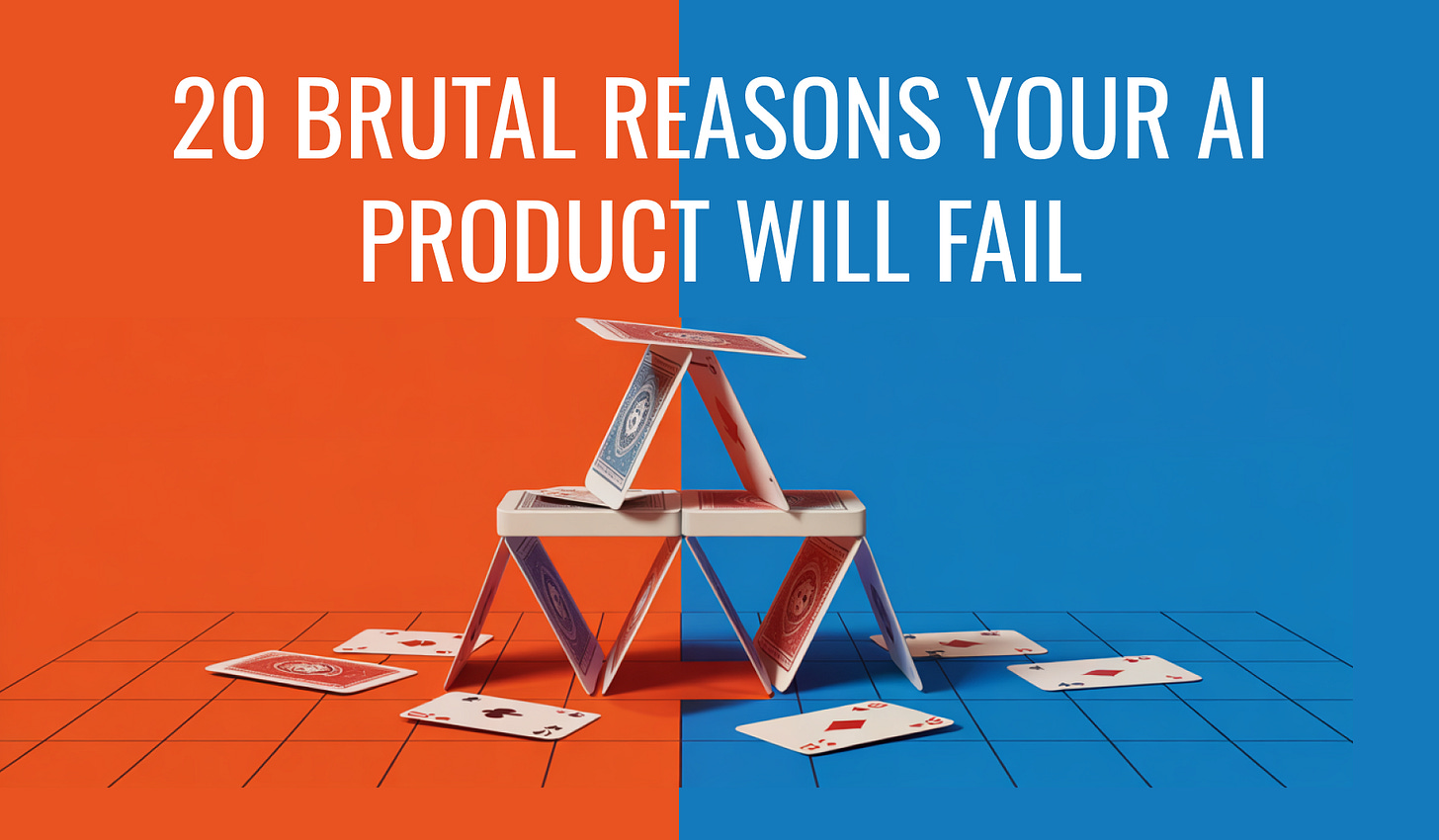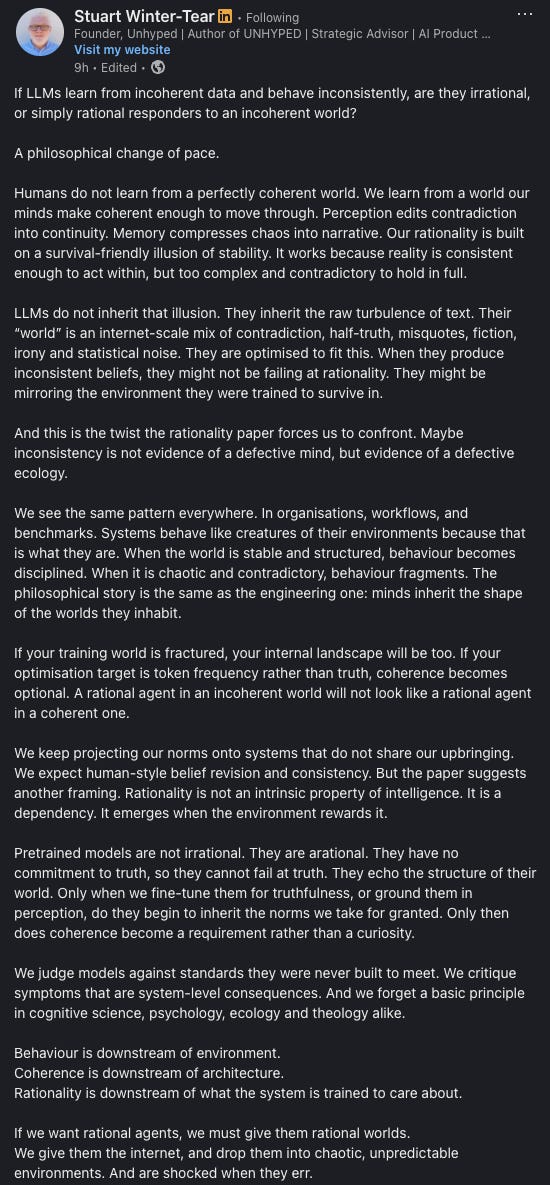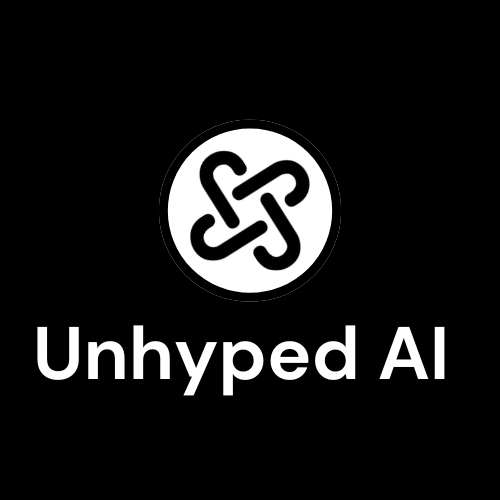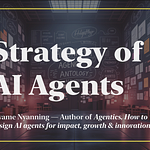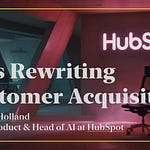Our latest episode features Jessica Randazza Pade, Head of Brand Activation & Commercialization at Neurable. Named to Campaign US’s 40 Over 40 and ELLE Magazine’s 40 Under 40, Jessica is an award-winning global digital marketer, business leader, and storyteller. She explains why AI is not a value proposition, how to turn vague use cases into measurable outcomes, and why making technology invisible is often the strongest competitive advantage.
“If the user can’t articulate what’s different in their life because of your product, you’re selling a vitamin—not a painkiller.”
Listen on Apple Podcasts | Spotify
Shape Our 2026 Research
We’re mapping where teams are struggling with AI adoption and what tools, frameworks, and support they need in 2026. Your input directly shapes our annual research and the topics we cover.
Take the survey → https://tally.so/r/Y5D2Q5
AI has lowered the cost of prototyping but raised the bar for adoption. Most AI products fail because they launch demos instead of durable workflows, rely on large models where small ones would work better, ignore trust, or sell “time savings” instead of business outcomes. Organizations resist tools that feel risky, inaccurate, unproven, or misaligned with real workflows. Complicated architecture, poor UX, weak personalization, and unclear ROI all compound the problem.
Here’s a sample of it:
#3: Your product doesn’t actually learn. Fake personalization destroys trust.
#4: One hallucination can end adoption permanently.
#8: “Saving time” is not a business case—outcomes are.
#11: Organizational silos suffocate AI products.
#17: Without a workflow and measurable ROI, you don’t have a product.
AI will not save your product. Only reliability, trust, workflow clarity, governance readiness, and measurable value delivery will.
Read the full article → https://ph1.ca/blog/why-your-AI-product-will-fails
The Year of AI Value
This video covers why 2026 marks a turning point where AI is judged not by novelty or intelligence but by measurable ROI, workflow impact, and operational reliability. It explains why businesses are shifting from “AI features” to fully redesigned AI-enabled systems.
We are past the point of buying AI based on promises
AI buyers no longer invest because the tech is impressive. They invest when it:
delivers measurable ROI
reduces operational and compliance risk
integrates into existing workflows
produces consistent results
overcomes organizational resistance and silos
If you’d like us to create a full episode on why AI products fail, add a comment to this post.
The AI Adoption Curve Is About to Flip
This video explains how organizations are moving from experimentation to structural integration, redesigning roles, responsibilities, and workflows around AI. It also highlights early signals that distinguish “tool usage” from true operational adoption.
Watch →
Featured Thinker: Stuart Winter-Tear
This week we’re spotlighting the insightful work of Stuart Winter-Tear, founder of Unhyped. His writing reframes LLM inconsistency as a reflection of the chaotic and contradictory data ecosystems they’re trained on—challenging assumptions about rationality, coherence, and system behavior.
Featured Reads
1. The GenAI Divide: Why 95% of enterprise GenAI projects fail
MIT’s 2025 State of AI in Business report finds that 95% of GenAI pilots generate no measurable ROI, mainly due to lack of workflow integration and unclear value metrics.
https://mlq.ai/media/quarterly_decks/v0.1_State_of_AI_in_Business_2025_Report.pdf
2. Apple Mini Apps and the new distribution frontier
Greg Isenberg outlines how Apple Mini Apps may redefine onboarding, distribution, and reach across the entire consumer ecosystem.
https://x.com/gregisenberg/status/1989341460894711838
3. Calum Worthy’s “2wai” and the ethics of selling the unimaginable
The actor launched an app enabling people to generate AI avatars of deceased relatives—a revealing look at how AI now commercializes ideas once considered unthinkable.
https://www.businessinsider.com/calum-worthey-2wai-ai-dead-relatives-app-launch-2025-1
4. The Complete Guide to Building with Google AI Studio
Marily Nika provides a comprehensive, practical guide to building production-ready applications with Google’s AI ecosystem.
5. SNL’s Glen Powell AI Sketch: When satire becomes a warning
The Atlantic unpacks how SNL’s AI sketch captures the cultural moment—where AI shifts from hype to comedic critique, signaling deeper public skepticism.
https://www.theatlantic.com/culture/2025/11/snl-glen-powell-ai-sketch/684944/
Coming Up on the Podcast
Our upcoming guests include:
Ovetta Sampson — Chief Human Experience Officer & AI Design leader
https://www.ovetta-sampson.com/Dr. Maya Ackerman — Generative AI researcher and creativity systems expert
https://maya-ackerman.com/Leonardo Giusti, Ph.D. — Head of Design, Archetype AI
https://www.archetypeai.io/
If you haven’t participated yet, please take our 2026 survey and help shape where our research goes next: https://tally.so/r/Y5D2Q5
What challenges are you facing with your AI projects?
Whether you’re struggling with:
product adoption
pricing and positioning
ROI and value proof
trust and accuracy
demo-to-paid conversion
internal resistance or workflow clarity
the complexity of hardware plus AI
We’d love to hear from you. arpy@ph1.ca


